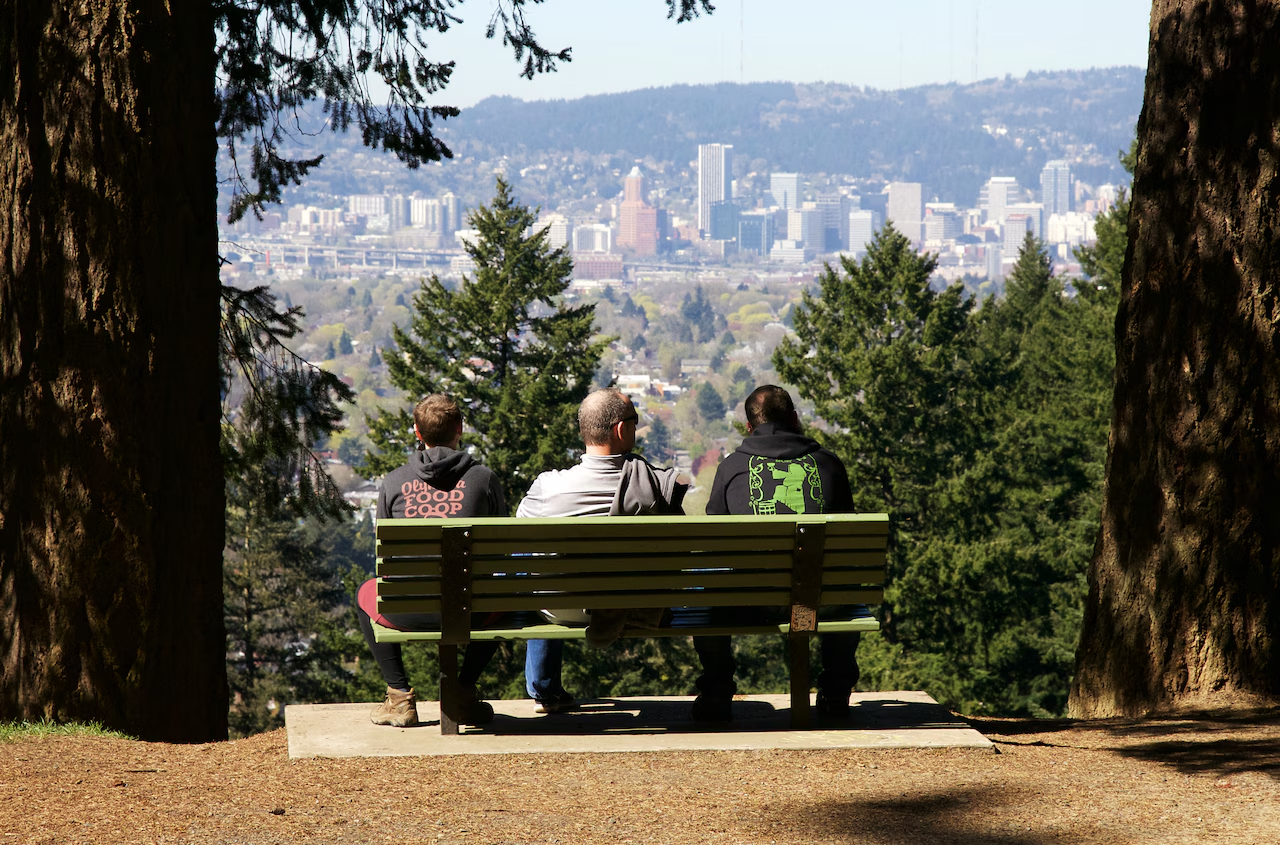A High-Stakes Vote for Portland’s Parks
Portland voters face a difficult decision this November: agree to a 75% property tax increase to sustain the city’s parks system or watch one of its most valued public assets slide into decline. Measure 26-260 — appearing on the November ballot — seeks to raise the city’s current parks levy from 80 cents to $1.40 per $1,000 of assessed property value annually.
City officials say the increase is not to expand services but simply to maintain existing operations. Without it, they warn, Portland Parks & Recreation would be forced to make drastic cuts that could shutter community centers, reduce maintenance, and eliminate free and reduced-cost programs for thousands of families.
Under the proposed measure, the average homeowner would pay $133 more each year, while commercial property owners would pay about $188 more.
Also Read
What the Current Levy Funds
The existing five-year levy, passed in 2020 with 64% voter approval, expires at the end of this year. It funds basic park maintenance, natural area restoration, and community recreation programs. It also subsidizes swim lessons, summer camps, and youth sports for low-income families.
However, none of those dollars address the system’s most pressing challenge — an infrastructure repair backlog now estimated between $550 million and $800 million.
The proposed levy would begin to chip away at that deficit, but only slightly. Roughly $2 million per year, or less than 1% of projected annual revenue, would go toward capital maintenance.
Financial Struggles and Leadership Challenges
The Parks Bureau’s financial woes are not new. Even with the 2020 levy, it has continued to face rising costs, inflation, and stagnant city revenues. In recent years, the bureau added hundreds of staff members but also faced the threat of major budget cuts — including a proposed $14 million reduction earlier this year under Mayor Keith Wilson’s draft budget.
A recent audit from Portland Auditor Simone Rede exposed deeper concerns. Rede’s report concluded that the bureau “lacks a plan for reasonable parks upkeep” and has not demonstrated sufficient cost-saving efforts.
“The public received a request for renewed levy funding without evidence that Parks had systemically pursued savings,” Rede wrote. “Parks risks not providing the public with important data to inform their decisions.”
In response, city officials pledged to complete a fiscal sustainability plan by June 2028, outlining long-term funding strategies.
The Proposed Costs for Residents and Businesses
If passed, the levy would generate an estimated $456 million over five years, supporting daily operations, cleaning, and maintenance.
-
Median residential homeowner: $310 annually (up from $177)
-
Median commercial property owner: $439 annually (up from $251)
-
Median assessed home value: $221,600
-
Median assessed commercial value: $313,810
About 40% of the bureau’s current $170 million annual budget already comes from the existing levy.
City officials say that without renewal, the bureau would need to cut up to half of its services, including closing community centers and pools, reducing maintenance staff, and eliminating low-income programs.
Broad Support — But Lingering Skepticism
Measure 26-260 has no formal opposition campaign but faces skepticism among voters weary of rising taxes. Supporters include Portland’s top political leaders, major nonprofits, labor unions, and business coalitions. The campaign Portlanders for Parks has already raised $118,000 to promote the measure.
Still, even supporters acknowledge the challenge ahead.
“It’s going to be an uphill battle,” said City Councilor Jamie Dunphy, who represents East Portland. “More money for the same level of service? It’s a hard proposition for people who are frustrated with City Hall.”
The 2020 measure was billed as a temporary fix, meant to buy time for the Parks Bureau to develop sustainable funding solutions. Five years later, those solutions have yet to materialize.
Accountability Measures in the New Proposal
To rebuild public trust, the updated levy would create a new citizen oversight committee that reports directly to the Portland City Council. The committee’s role would be to track spending and ensure transparency in how levy funds are used.
City leaders hope that additional oversight will reassure voters skeptical of the city’s fiscal management.
“Voters deserve to see exactly where every dollar goes,” Dunphy said. “This committee ensures they will.”
The Stakes for Portland’s Green Spaces
Portland’s park system spans 156 parks, 11 swimming pools, and 12 community centers, alongside thousands of acres of natural areas. For decades, the system has been celebrated as a hallmark of the city’s livability and environmental values.
But aging facilities and limited funds have taken their toll. Leaking roofs, deteriorating playgrounds, and failing HVAC systems are now common. Without the levy increase, officials warn that park conditions will worsen rapidly, with basic upkeep and trash collection among the first services to be cut.
Parks Director Alyssa Parker said that maintaining current service levels without the levy increase would be “financially impossible.”
“If this measure fails,” Parker explained, “we’ll have to make heartbreaking decisions about what to close and who loses access.”
Critics Question the Funding Model
Not everyone agrees with the city’s approach. Bob Weinstein, a former City Council candidate and longtime government fiscal analyst, argues that the measure perpetuates an unsustainable model.
“Portland doesn’t lack revenue. It lacks discipline and a plan,” Weinstein said. “True stewardship is building what we can maintain.”
Weinstein and others believe the city should prioritize internal reforms and cost controls before seeking more taxpayer money. Critics also note that the proposed levy dedicates only a fraction of new funds to addressing the long-term maintenance backlog — the very problem it was meant to solve.
What Happens if the Measure Fails
If voters reject Measure 26-260 on November 4, the Parks Bureau could face up to 50% cuts in staffing and services. Community centers may close, swimming pools could shut down, and low-income families might lose access to recreational programs.
Such cuts would also affect maintenance crews, potentially leading to littered, unsafe, and deteriorating public spaces.
City leaders insist that the proposed tax hike is the only viable path to preserve Portland’s parks in their current form.
“This is not about expanding parks,” said Mayor Keith Wilson. “It’s about saving what we already have before it’s too late.”
A Familiar Dilemma for Portland Voters
As Election Day approaches, Portlanders must decide whether to accept higher property taxes for a system they cherish — or risk watching it decline.
Supporters frame it as a vote to protect the city’s livability and outdoor culture, while critics see it as another example of mismanagement.
Either way, the outcome of Measure 26-260 will shape the future of Portland’s parks for years to come — determining whether they remain a source of civic pride or become yet another casualty of the city’s budget woes.












